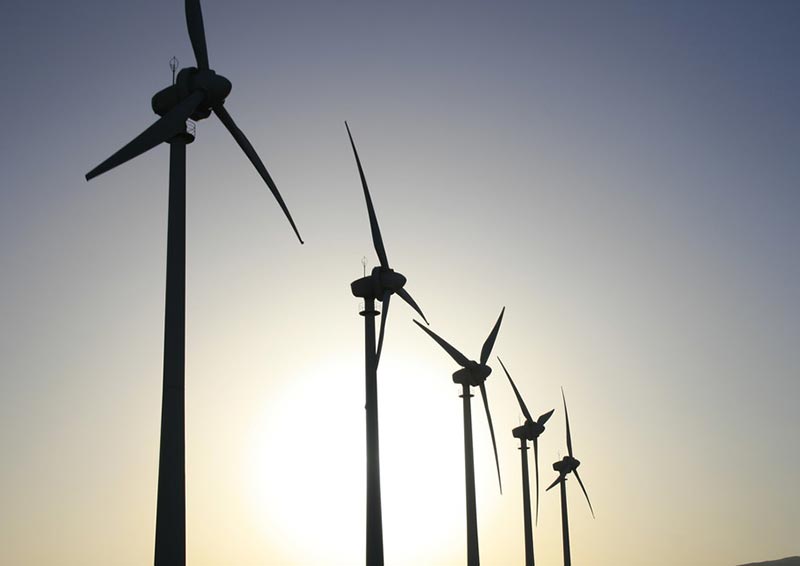State of the nation 2020 and the journey to net zero
President’s Future Leader and State of the Nation 2020 Steering Group Member, Holly Smith, provides an insight into funding and financing our sector’s journey to a sustainable future.

|
| As an industry we must commit to clear actions on how to achieve the UK’s 2050 Net Zero target. |
Contents |
[edit] Introduction
Infrastructure is a major contributor to the UK’sgreenhouse gasemissions. In fact,transport and electricity from power stations alone was responsible for 33% and 18% of all emissions respectively in 2018 – more than half of the UK’s total.
As an industry we must commit to clear actions on how to achieve the UK’s 2050 net zero target. One of the greatest challenges achieving this will be ensuring there is sufficient funding and financing for sustainable infrastructure.
As a President’s Future Leader, I have had the opportunity to join the Steering Group for the ICE’s State of the Nation 2020 report which aims to identify policy recommendations for government for achieving net zero. So far the project has consulted with over 350 ICE members and subject matter experts. Most recently, I attended a funding and financing focus group with industry leaders to ascertain their views on ensuring the flow of investment into cleaner infrastructure and technology. Below, I have shared some of the key points of interest discussed.
[edit] Evaluating the effectiveness of financing models in achieving sustainable solutions
Contracts for Difference (CfD) were discussed as a successful policy intervention in incentivising investment in secure, low carbon electricity, whilst improving resilience and affordability for consumers. CfDs aim to provide long-term price stabilisation to low carbon energy generation. By allowing developers to bid at auction to secure a long-term fixed price for their energy, this provides a security of revenues and an overall more attractive investment. CfDs have been deemed to be successful for reducing the cost of renewable power projects, particularly in offshore wind, lowering the cost by 66%.
Although CfDs have been a fantastic mechanism at driving change, focus group attendees believe they will need to evolve in order to match the scale and capacity required to deliver our net zero target, particularly in relation to the intelligent evaluation of the current barriers. There was also agreement that it is vital that they are modified in order to align with government’s net-zero targets. For example, in 2019 the Conservative Party pledged to generate 40GW of energy through offshore wind by 2030; however the design of CfD auctions isn’t consistent with this target.
[edit] Reflecting on unusual times and the route to a green recovery
Prior to the Covid-19 pandemic, it was highlighted that many in the financial services sector were considering strategies on how to support other industries in the transition to net zero. Interestingly, despite the vast disruption Covid-19 has caused to our everyday lives, the focus group agreed that the net zero agenda is perhaps now stronger than ever.
On reflection, it was felt that our society has proven that it has the ability to rapidly adapt. This crisis has demonstrated that if change needs to be achieved, it is more than possible and within our grasp.
Discussion then turned to considering how the COVID-19 response has been reactive and that we cannot afford to take the same approach to net zero. Households globally are now discussing how we might improve our resilience against future challenges. Although the group speculated how the post-COVID-19 world will look, it was jointly acknowledged that there is now a unique opportunity to re-imagine how the future looks and re-evaluate what is truly important. This has the power to prioritise and gain momentum for the dialogue around net zero, and as an industry we must take advantage of this.
History tells us that sustainability issues move down the agenda in more difficult economic times. The anticipated economic recession is a frightening prospect for us all but does the government now have the chance to recalibrate? The group raised the importance of basing our economic recovery around defining our pathway to net zero. For example, having net zero embedded in stimulus packages before delivery to market, would show clear and decisive commitment towards our 2050 target, and subsequently increase our resilience.
[edit] Preparing for launch
Being a part of the Steering Group for this year’s State of the Nation has been a fantastic opportunity to meet many ICE members and debate the major policy issues facing our industry. Over the coming months we are looking to finalise and present a series of policy ideas and interventions surrounding achieving net zero in infrastructure.
This article originally appeared as: ‘State of the Nation – How will the journey to net zero be paid for?’ on the ICE Infrastructure Blog on 6 May 2020. It was written by Holly Smith MEng GMICE, Civil Engineer/President’s Future Leader.
--Institution of Civil Engineers
[edit] Related articles on Designing Buildings Wiki
Featured articles and news
UKCW London to tackle sector’s most pressing issues
AI and skills development, ecology and the environment, policy and planning and more.
Managing building safety risks
Across an existing residential portfolio; a client's perspective.
ECA support for Gate Safe’s Safe School Gates Campaign.
Core construction skills explained
Preparing for a career in construction.
Retrofitting for resilience with the Leicester Resilience Hub
Community-serving facilities, enhanced as support and essential services for climate-related disruptions.
Some of the articles relating to water, here to browse. Any missing?
Recognisable Gothic characters, designed to dramatically spout water away from buildings.
A case study and a warning to would-be developers
Creating four dwellings... after half a century of doing this job, why, oh why, is it so difficult?
Reform of the fire engineering profession
Fire Engineers Advisory Panel: Authoritative Statement, reactions and next steps.
Restoration and renewal of the Palace of Westminster
A complex project of cultural significance from full decant to EMI, opportunities and a potential a way forward.
Apprenticeships and the responsibility we share
Perspectives from the CIOB President as National Apprentice Week comes to a close.
The first line of defence against rain, wind and snow.
Building Safety recap January, 2026
What we missed at the end of last year, and at the start of this...
National Apprenticeship Week 2026, 9-15 Feb
Shining a light on the positive impacts for businesses, their apprentices and the wider economy alike.
Applications and benefits of acoustic flooring
From commercial to retail.
From solid to sprung and ribbed to raised.
Strengthening industry collaboration in Hong Kong
Hong Kong Institute of Construction and The Chartered Institute of Building sign Memorandum of Understanding.
A detailed description from the experts at Cornish Lime.
























